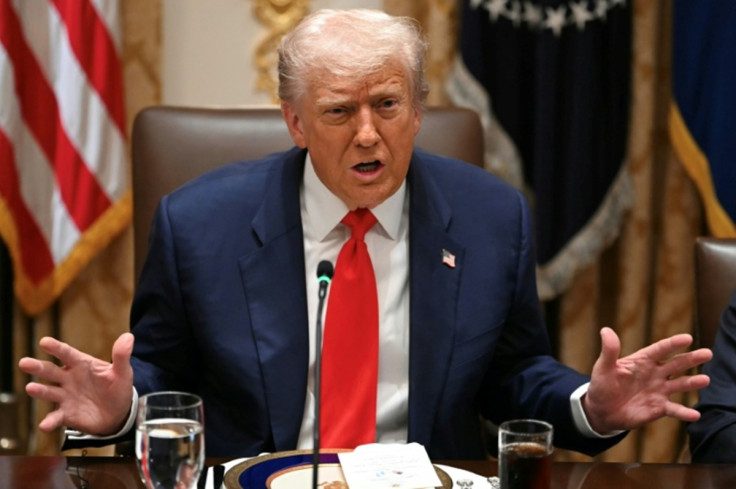
A breakthrough moment in global politics is unfolding as President Donald Trump prepares to meet Chinese President Xi Jinping in Busan, South Korea, to finalise the sale of TikTok's United States operations.
The long-awaited deal, confirmed by Treasury Secretary Scott Bessent, marks a dramatic turn in US-China relations after months of escalating trade tensions and security threats.
The upcoming summit will reportedly see the two leaders formalise an agreement that redefines TikTok's ownership and settles a bitter dispute that has dominated Washington and Beijing's tech and trade agenda since early 2024.
The development follows weeks of speculation over how Trump would balance national-security demands with economic diplomacy.
The Deal at the Centre of the Storm
Bessent announced on Sunday that the US and China had reached a deal on TikTok's future. Under the terms, Chinese parent company ByteDance Ltd. will retain less than 20 per cent ownership of TikTok's US operations, with the majority controlled by American investors.
According to Bessent, the agreement was reached in Madrid and will be 'consummated' once Trump and Xi meet in Busan later this week. While he declined to disclose commercial details such as the valuation, the move satisfies Washington's demand for domestic control of the popular video-sharing app.
The announcement follows the Protecting Americans from Foreign Adversary Controlled Applications Act (PAFACA), a 2024 law requiring foreign-owned social-media platforms deemed national-security risks to divest or face a nationwide ban.
The Korea Summit and Xi Jinping's Role
Xi Jinping's participation in the deal underscores the geopolitical stakes behind what might appear to be a commercial transaction.
Officials familiar with the talks in Beijing indicated that Chinese negotiators reached a preliminary consensus on the TikTok deal, signalling President Xi Jinping's willingness to ease tensions and avoid further escalation in the US-China trade dispute.
Busan, chosen as the meeting site, symbolises neutral ground and reflects a deliberate attempt to stage a diplomatic reset between the world's two largest economies.
The encounter is expected to yield formal signatures and a joint statement highlighting cooperation in technology and trade.
The agreement also helps Xi project an image of pragmatism at home amid a slowing Chinese economy and foreign-investment pressures.
What's at Stake for the United States
For Trump, the TikTok sale represents more than a tech victory; it is a strategic move within his broader US-China trade agenda. Officials confirmed that the deal helps avert a threatened 100 per cent tariff on Chinese imports, easing inflation fears and boosting US agricultural exports.
Bessent added that the negotiations paved the way for China to resume purchasing American soybeans and temporarily paused Beijing's restrictions on rare-earth mineral exports, which are crucial for US technology manufacturers.
Political analysts note that these trade wins bolster Trump's image as a hard-bargaining dealmaker while providing relief to US farmers and businesses caught in the crossfire of previous tariff disputes.
What This Means for TikTok and Global Tech
The restructuring of TikTok's ownership will place its data storage and governance squarely under US jurisdiction, addressing concerns about user privacy and Chinese government access.
However, it remains unclear whether China will allow TikTok's algorithm to be exported as part of the deal, leaving a key technical element unresolved.
Analysts predict that the sale could set a precedent for future tech negotiations, forcing other foreign-owned platforms to reassess compliance with US security rules.
Financial markets have reacted positively to the breakthrough, viewing it as a step toward stabilising US-China economic relations after months of uncertainty.
Political and Public Reaction
Reactions in Washington were swift. Supporters of the administration praised the deal as a diplomatic coup that protects American users while diffusing tensions with Beijing.
Critics, however, warned that China's continuing minority stake could leave lingering data-security concerns.
Social media erupted with speculation over the Trump-Xi summit, with commentators calling it one of the most consequential meetings of the year.
For both leaders, Busan is poised to become the stage for an explosive geopolitical handshake — one that could redefine the balance of power in technology, trade, and diplomacy.







